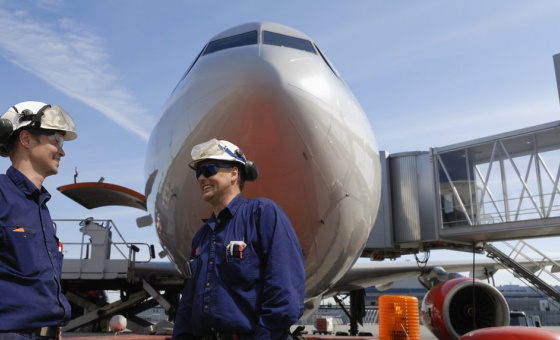
Description
Aviation engineers outline flying machine, rocket, satellites, and rockets. Also, they test models to ensure that they work as per plan.
Aeronautical engineers work with air ship. They are included essentially in planning flying machine and drive frameworks and in understanding the streamlined execution of air ship and development materials. They work with the hypothesis, innovation, and routine with regards to trip inside the world's climate. Astronautical engineers work with the science and innovation of spacecraft and how they perform inside and outside the world's air.
Aviation engineers commonly work all day. Engineers who coordinate activities should frequently work additional hours to screen advance, to guarantee that the outline meets prerequisites, to decide how to quantify air ship execution, to see that creation meets plan measures, and to guarantee that due dates are met.
Common Duties/Routines
- Aviation engineers commonly do the accompanying: Direct and organize the outline, fabricate, and testing of flying machine and Flight items.
- Assess proposition for tasks to decide whether they are in fact and monetarily achievable. Determine whenever proposed activities will result in safe airplane and parts.
- Evaluate outlines to see that the items meet designing standards, client prerequisites, and ecological difficulties.
- Develop acknowledgment criteria for plan strategies, quality guidelines, and sustainment after conveyance, and fulfillment dates.
- Ensure that tasks meet quality principles. Inspect failing or harmed items to recognize wellsprings of issues and conceivable arrangements.
Aviation engineers may develop new advances for use in aeronautics, resistance frameworks, and shuttle. They frequently have some expertise in territories, for example, streamlined liquid stream; auxiliary plan; direction, route, and control; instrumentation and correspondence; apply autonomy; and drive and ignition. Aviation engineers can have practical experience in planning diverse kinds of Aeronautics items, for example, business and military planes and helicopters; remotely steered air ship and rotorcraft; shuttle, including dispatch vehicles and satellites; and military rockets and rockets. They frequently progress toward becoming specialists in at least one related fields: streamlined features, thermodynamics, divine mechanics, flight mechanics, impetus, acoustics, and direction and control frameworks. Aviation engineers ordinarily spend significant time in one of two sorts of building: aeronautical or astronautical.
Aeronautical and astronautical engineers confront distinctive natural and operational issues in planning airplane and spacecraft. However, the two fields cover a great deal of similar things since they both rely upon the basic principles of physics.

Required/Trained Skills
Aviation engineers must have a four year college education in Flying designing or some other field of engineering or science identified with Flying frameworks. Some Flight engineers take a shot at ventures that are identified with national resistance and hence require trusted status. U.S. citizenship might be required for specific kinds and levels of clearances.
Entry-level Aviation engineer more often than not require a four year certification. Secondary school students intrigued by considering Aviation engineering should take courses in chemistry, physics, and math, including algebra, trigonometry, and analytics.
Four year degree programs incorporate classroom, research facility, and field studies in subjects, for example, general engineering principles, propulsion, strength and control, structures, mechanics, and streamlined features, or, in other words of how air cooperates with moving articles.
Salary/Compensation
Aviation engineers are usually very highly sought, and paid well around the world. Since the field is very vast and expertise in various places in this field cannot be found in abundance, companies usually keep their employees happy and paid well. The average American salary for an aviation engineer can vary from anywhere as low as $45000 to $135000 per year. However, if you keep getting various certifications, your pay scale increases very fast, very quick.
Навички 5
Навички
ВАЖКІ НАВИЧКИ
- Math skills
- Knowledge of aircrafts systems
- Aircraft configuration skills
- Engineering skills
- Technical Vision


